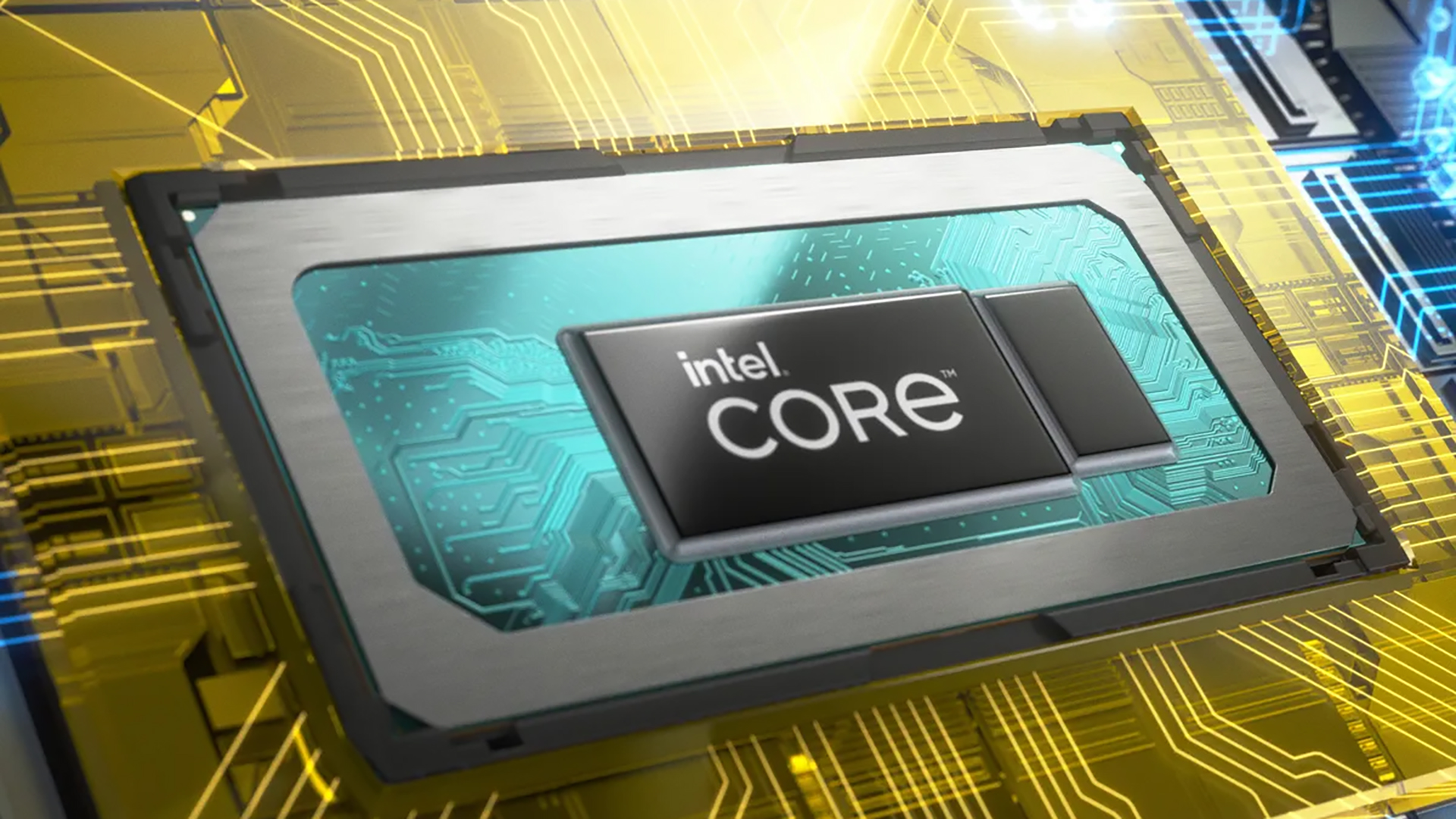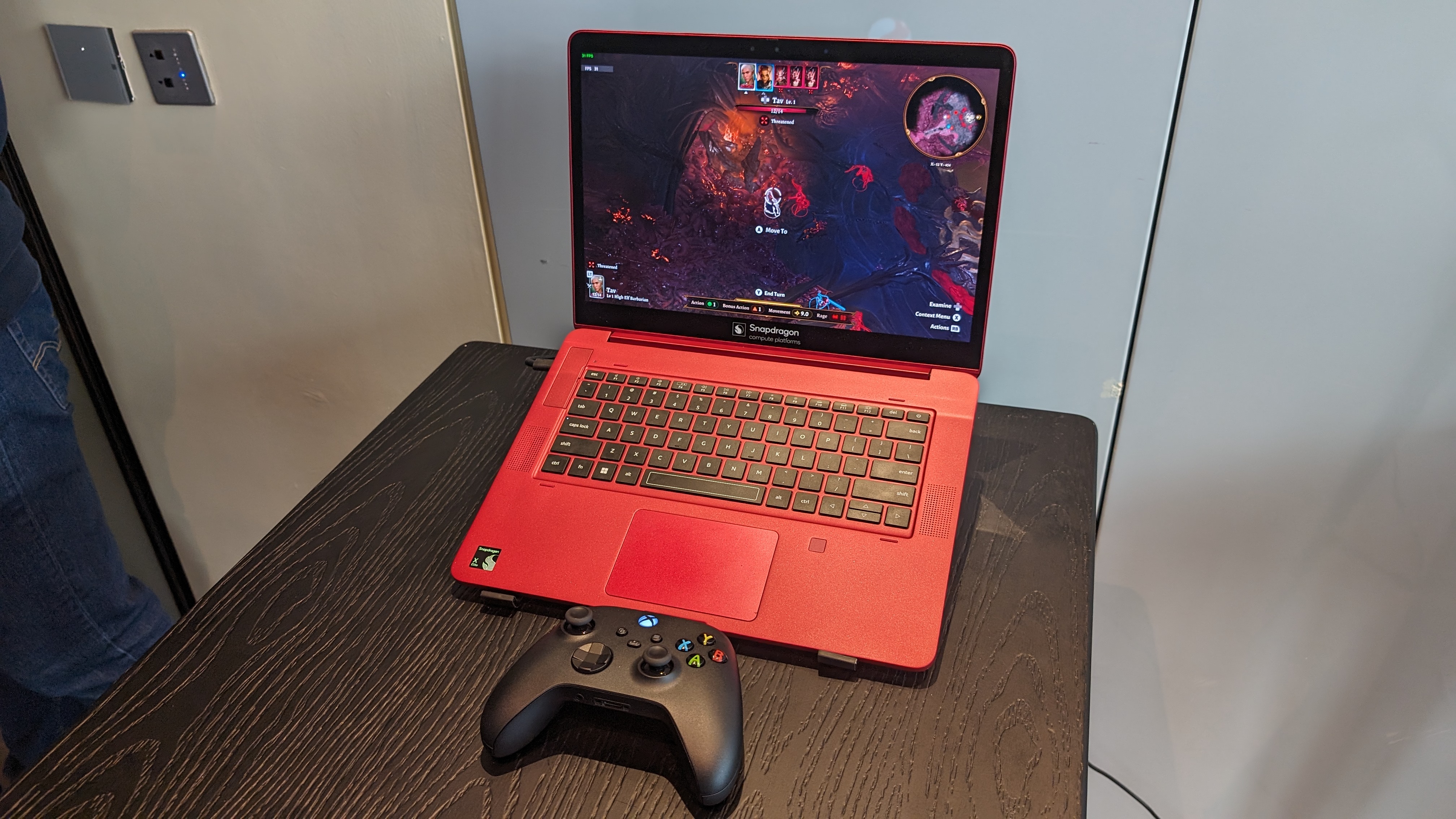Thin-and-light gaming laptops could be revolutionized if this Lunar Lake leak is anything to go by
The age of integrated graphics is nigh?

We’ve just caught a glimpse of the potential performance level of the integrated graphics with Lunar Lake – powered by Intel’s next-gen Xe2 Battlemage architecture – and this is another tantalizing hint that on-board GPUs are going to be seriously stepping up to the plate to hit higher frame rates in the near future.
What appears to be an HP Spectre x360 laptop with a Lunar Lake (Intel Core Ultra 200V) chip – obviously this is pre-release sample hardware – has been flagged up on X (formerly Twitter) by leaker @miktdt.
HP Spectre x360 with Lunar Lake it seemshttps://t.co/wc8LQjMAgyApril 25, 2024
The Lunar Lake CPU is present in a SiSoftware benchmark, where a test result is shown for the Intel Arc integrated graphics solution. According to the details provided, the spec of the GPU is pitched at 56 EUs (Execution Units) running at 1.75GHz and using 17W of power.
What result does the GPU achieve? An impressive 2,108Mpix/s which seems to back up Intel’s claims that Lunar Lake graphics will be twice as fast as Meteor Lake – a huge leap.
As rumored elsewhere on multiple occasions, the flagship Lunar Lake mobile CPU is expected to offer four performance cores and four efficiency cores.
Analysis: Are we set to be spellbound by Battlemage?
We should further bear in mind that this laptop is a pre-release model running sample silicon, and indeed the GPU appears to be cut-down – with 56 EUs it’s running 7 Xe Cores rather than the rumored 8 Xe Cores of the flagship Xe2-LPG (low-power mobile) Battlemage graphics solution.
So, the finished Lunar Lake chip will likely pull off a better score than this, particularly with higher clock speeds on top of that consideration for the cores in use here.
Sign up for breaking news, reviews, opinion, top tech deals, and more.
That said, before we get too carried away, we need to bear in mind that this leak could be wrong or somehow faked, and it is just one single benchmark – and SiSoftware is hardly the first choice for graphics tests, either.
It’s still a considerable hint that Battlemage integrated graphics are going to be pretty impressive, though – lending more weight to the idea that Intel is onto a real winner with Lunar Lake, which is set to drive thin-and-light laptops to new heights in terms of running demanding apps and contemporary games.
There’s a lot happening in this regard currently, though. On top of Lunar Lake, AMD’s Strix Point is seriously promising in terms of laptop CPUs – it should arrive later this year, perhaps around the same time as Lunar Lake. (Strix Point Halo will be even beefier and follow next year, by the way).
And while this battle of Intel versus AMD is going on, there’s another seriously peppy entrant into the laptop CPU arena that’ll arrive before either of these next-gen products – and that’s Qualcomm’s Snapdragon X Elite (and Plus variants).

Now, that is a very different kettle of silicon, because it’s an ARM-based CPU, but emulation to run everyday x86 software (coded for AMD or Intel processors) has come on leaps and bounds. So much so that we recently took the Snapdragon X Elite out for a hands-on spin and found it played Baldur’s Gate 3 just fine, at 30 fps – via emulation on a super-slim reference laptop.
That’s quite an achievement, and with this ARM CPU coming into view – it should be in laptops on shelves in June – and then AMD Strix Point and Intel Lunar Lake arriving later this year, 2024 could well see the realization of truly powerful thin-and-light laptops that can handle PC games comfortably enough thanks to the strides forward being made with integrated GPUs.
So, will discrete graphics cards for laptops soon be a thing of the past? Well, no they won’t, because serious mobile gamers will always go for beefier notebooks with the biggest and best standalone GPU they can fit – and there will always be that extra level of performance that some gamers will want. However, for those who desire a slim and portable laptop that can play contemporary games with no fuss – their laptop options are about to open up dramatically, it seems.
And as we’ve recently discussed, while discrete GPUs for laptops may not be going anywhere in the near future, maybe their demise is set to happen sooner than you think. Remember sound cards? What happened to them? Exactly…
You might also like
Darren is a freelancer writing news and features for TechRadar (and occasionally T3) across a broad range of computing topics including CPUs, GPUs, various other hardware, VPNs, antivirus and more. He has written about tech for the best part of three decades, and writes books in his spare time (his debut novel - 'I Know What You Did Last Supper' - was published by Hachette UK in 2013).